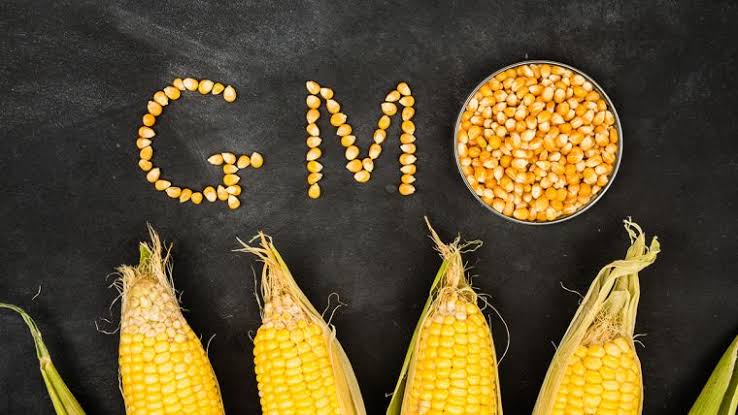GMO debate heats up in Nigeria: A battle for food sovereignty amid crisis

Genetically Modified Organism- GMO. Photo Credit- Alltech
In the lush farmlands of Benue, where golden maize once swayed under the Nigerian sun, a shadow of unease has settled. The state, known as the “Food Basket of the Nation,” along with Niger, Plateau, and Taraba, has long been a cornerstone of Nigeria’s agricultural output. But recent years have brought a disturbing trend: targeted attacks, often labeled as clashes between farmers and herders, have forced many to abandon their fields. As the nation grapples with an unprecedented hunger crisis; 31 million Nigerians facing acute food insecurity, according to a stark 2025 UN World Food Programme report, a controversial solution has emerged: genetically modified organism- GMO. Yet, critics like, Mazi Nathan on social media, is sounding an alarm, igniting a fierce debate over the future of Nigeria’s food sovereignty.
The growing GMO concern rooted in crisis
Mazi Nathan post on X is compelling, urging Nigeria to reject GMOs. His argument is clear and impassioned: the introduction of these engineered crops could undermine the nation’s agricultural independence. He lists six reasons to say no: GMO seeds can contaminate land, preventing the growth of local varieties; they don’t reproduce, forcing farmers to buy new seeds each season; they are engineered for pesticide and herbicide resistance, raising health concerns; their longer shelf life might hide nutritional drawbacks; they create economic dependency on foreign seed companies; and over 35 countries have banned or restricted them, reflecting global caution.
This stance resonates amid Nigeria’s current plight. The UN reports that funding cuts threaten to suspend aid for 1.3 million people in the conflict-ravaged northeast by August, with 300,000 children at risk of severe malnutrition. In Benue, where attacks in June alone claimed dozens of lives, farmers like 70-year-old Churi Ibrahim from nearby Dikwa describe trekking hours to reach their fields, only to return exhausted. “Farming is the only solution to hunger,” Ibrahim told the International Committee of the Red Cross, echoing a sentiment that Mazi Nathan ties to a deeper conspiracy.
RELATED STORIES
How Benue state became epi-center of farmers-herders clash
Climate change: A growing threat to Nigeria’s agricultural sector
Is GMO a global conspiracy or a coincidence for survival?
Critics suggests these attacks are no random act of violence but a deliberate economic sabotage, potentially orchestrated by state actors to pave the way for GMO acceptance. He points to a 2023 joint investigation by Lighthouse Reports, which uncovered a US government-funded PR firm targeting GMO-critical voices in Africa and Asia. The timing aligns with Nigeria’s 2024 approval of TELA maize, a drought- and pest-resistant GMO developed with international backing raising questions about foreign influence in a nation where food inflation hit 40.9% in June 2024.
Critics, including environmental group Greenpeace, label this “neo-colonial” technology, arguing it traps farmers in debt cycles and erodes seed sovereignty. Meanwhile, proponents, including medical influencer Dr. Chinonso Egemba, argue GMOs could address food insecurity, sparking a controversial online reaction. His recent video, viewed over 5.9 million times, has drawn both praise and accusations of being a “willing accomplice” in a scheme tied to figures like Bill Gates, who has invested $2.8 billion in Nigerian agriculture.
Implications of GMO adoption in Nigeria
The human costs is undeniable. In Mokwa, Niger State, floods in July 2025 killed over 150 and displaced thousands, worsening food access. Across the Middle Belt and North, violence has turned fertile lands into contested zones, with bean prices soaring 282% since October 2023, per the National Bureau of Statistics. Critics like Mazi Nathan have called for a total GMO ban, something similar with other countries ranging from France to India that have restricted these crops, citing risks to biodiversity and health, as noted in a 2018 Food and Chemical Toxicology study showing mixed safety evidence.
Yet, the push for GMOs persists. Nigerian leaders, raised by the success of Bt cowpea, urge West African neighbors to follow suit, sharing lessons from their rollout. Prof. Celestine Aguoru of the National Biotechnology and Biosafety Consortium emphasizes public education to counter misinformation, admitting Nigeria’s late start allowed skeptics to sow doubt. Meanwhile, the UN and FAO advocate for input-focused policies over import bans, which have failed to boost local output.
RELATED STORIES
The GMO global debate: The promises, perils in food, science
Nigerians’ plight: Why l refused to write President Tinubu
Conclusion
Currently, Nigeria stands at a crossroads. The maize fields, once symbols of abundance, now represent a battleground for control; between traditional farming, foreign technology, and the urgent need to feed a hungry and desperate population. Mazi Nathan’s post, with its stark warnings and striking imagery, has fueled a national conversation. Whether Nigeria embraces GMOs or doubles down on protecting its indigenous seeds, the decision will shape not just its food security but its identity in a globalized world. For now, Nigerian farmers wait, their fields silent, as the debate rages on.

